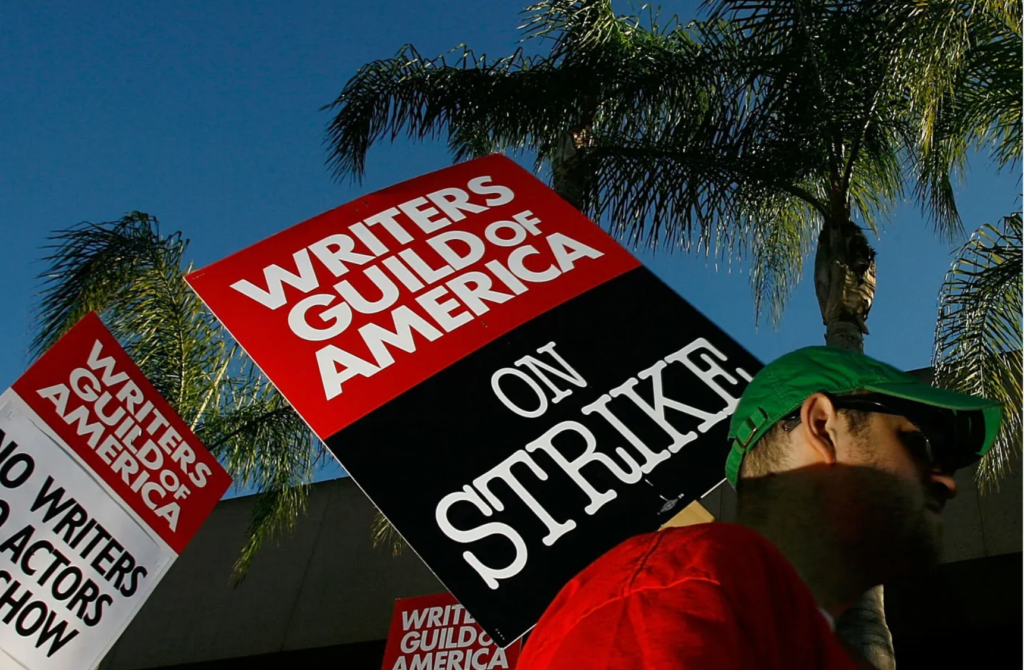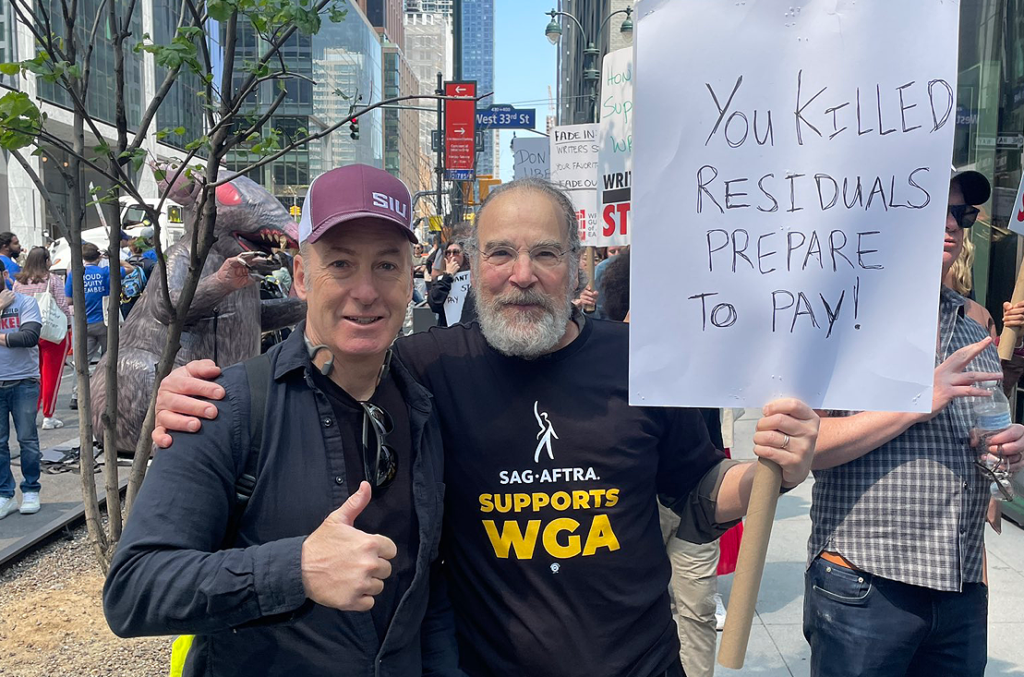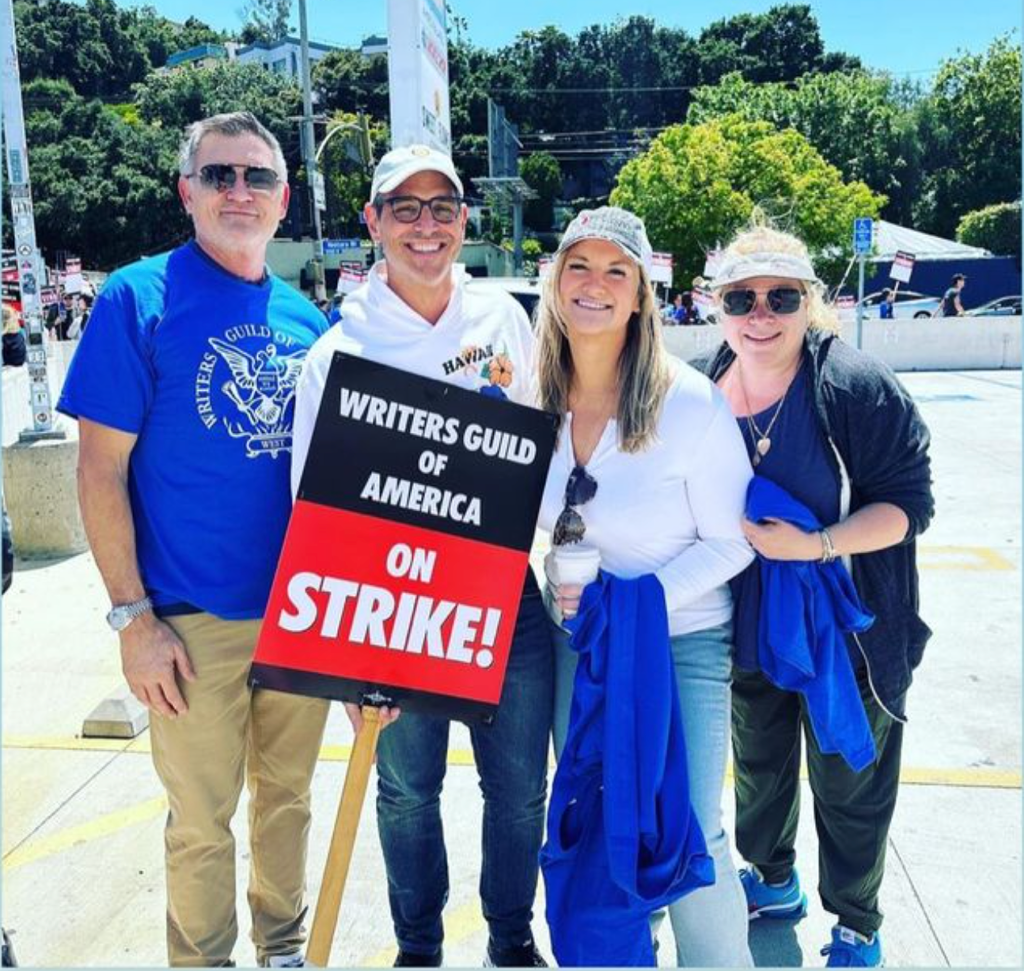
There’s no end in sight for the Hollywood writers and actors’ double strike headed into the Labour Day weekend.
The Writers Guild of America (WGA) has been on strike since May 2nd and SAG-AFTRA since July 14th.
The 8 negotiating members of the Alliance of Motion Picture and Television Producers (AMPT) are Netflix, Disney-ABC, NBC Universal, Paramount-CBS, Warner Bros Discovery, Amazon, Apple and Sony.
After 100 days of not talking, AMPT President Carol Lombardi reached out to the WGA in early August to restart negotiations.
At a meeting on August 11th, the AMPTP presented the WGA negotiators with a counteroffer and on August 22nd, four studio/streamer CEOs — Netflix’s Ted Sarandos, Disney’s Bob Iger, Warner Bros. Discovery’s David Zaslav and NBC Universal’s Donna Langley — joined a meeting to “lecture [them] about how good their single and only counteroffer was” according to the WGA.
Soon after, the counteroffer was leaked to the press, which the WGA characterized as “the companies’ plan from the beginning — not to bargain, but to jam us. It is their only strategy — to bet that we will turn on each other.”
On August 25th,, the WGA told its members that “the companies’ counteroffer is neither nothing, nor nearly enough”, according to The Hollywood Reporter.
With talks with the WGA at a stalemate, will the AMPTP move on to SAG-AFTRA negotiations after Labour Day?
At Issue:
Writers say the big push into streaming services has turned full-time careers into a “gig economy”. Writers could work on a 20+ episodes show for almost a year in the golden era of network television. Now episode orders are half that or less. And there is no upside if the show is a streaming success because streamers won’t share data about viewership and streamer residuals are fixed not viewership-based. Put that all together and writers are earning less despite the boom in content.
Streaming residuals:
The WGA wants an increased fixed streaming residual and the establishment of a viewership-based residual to reward success.
Counter offer: Six WGA staff to be given limited streaming viewership data over the next three years to help determine the template for viewership-based residuals in the future but meanwhile no writers will be told how their shows are doing or receive a residual based on that data.

Generative Artificial Intelligence Software:
The WGA wants to prevent the studios and streamers from replacing them with A.I and to stop their work being used to train generative AI software.
Counter-offer: Written material produced by generative AI software will not be considered “literary material” or “source material,” and writers’ “compensation, credit and separated rights will not be affected by the use of GAI-produced material.” But nothing to prevent writers’ scripts being used to train AI.
Minimum Staffing Requirements:
The WGA wants shows over a certain number of episodes to have a minimum number of writers. Instead of mini-rooms, where two or three writers are hired at union minimum to map out whole seasons before production starts. The guild wants to restore writers’ rooms where seven or more writers work for the whole season and get on-set producing experience in order to train the next generation of showrunners.
Counter-offer: Offering showrunners “at least two mid-level writers to be assigned to production who are each guaranteed at least 20 weeks of employment (unless the production period is shorter).”
Uber writer/producer Greg Berlanti picketing.
